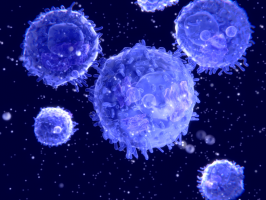
Immune checkpoints are surface proteins that cancer cells use to evade immune response.
These surface proteins are critical for cancer cell growth and drugs targeting these proteins have revolutionised the management of patients with a wide array of cancers.
Finding a mechanism to degrade these immune checkpoints may allow the immune system to kill cancer cells.
Researchers from Boston University School of Medicine (BUSM) have discovered the protein c-Cbl has the ability to degrade checkpoint protein PD-1, a protein found on T cells that helps keep them from attacking other cells in the body.
These findings have been published in the journal Scientific Reports.
Manipulating c-Cbl's ability to regulate expression of PD-1 may be beneficial in the treatment of certain cancers including melanoma, bladder, kidney, breast and non-small lung cancers.
Cancer cells often increase their expression to "trick" the immune system and avoiding being detected as foreign or harmful and thus avoid being attacked or destroyed.
Manipulating c-Cbl's ability to regulate expression of PD-1 may be incredibly beneficial in the treatment of these cancers.
Researchers examined the effect of c-Cbl on immune cells on experimental models lacking one copy of the c-Cbl gene.
Tumour cells were implanted in these models and growth of the tumours was compared between models lacking the gene and unmodified models which served as controls.
The researchers found that tumour growth was greater in the genetically the modified model.
According to the researchers, it may be possible in the near future to develop therapies that will inhibit tumour growth by activating c-Cbl protein.
"While drugs targeting PD-1 are currently available for clinical use and such agents command a global market cap of more than $3 billion, only a small fraction of cancer patients respond to them. This trend suggests a need for agents that work simultaneously on more than one cancer-causing mechanism. Activating c-Cbl will degrade several proteins that contribute to tumour formation allowing the effects of its actions to go above and beyond PD-1 medications alone," explained corresponding author Vipul Chitalia, MD, PhD, associate professor of medicine at BUSM.